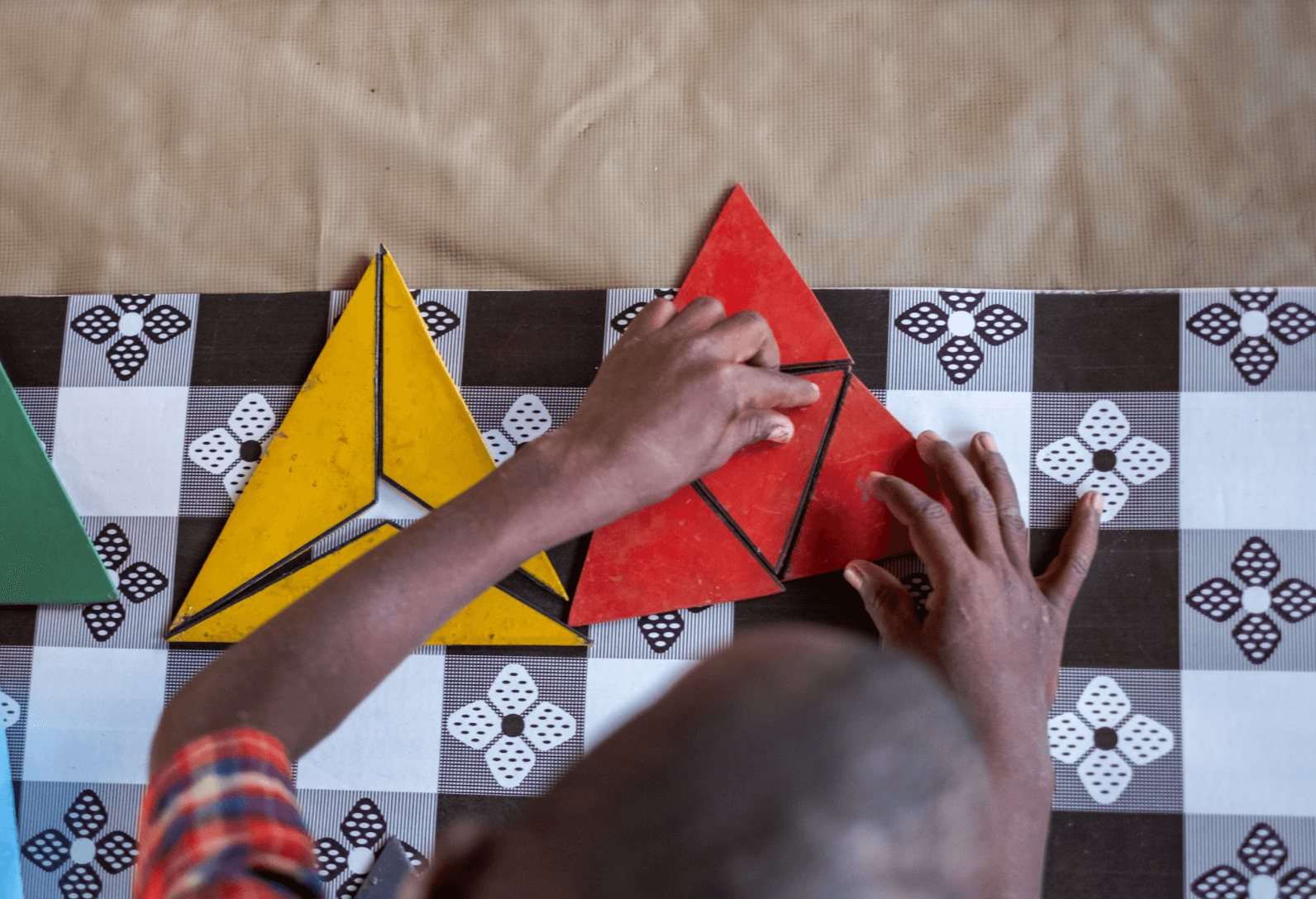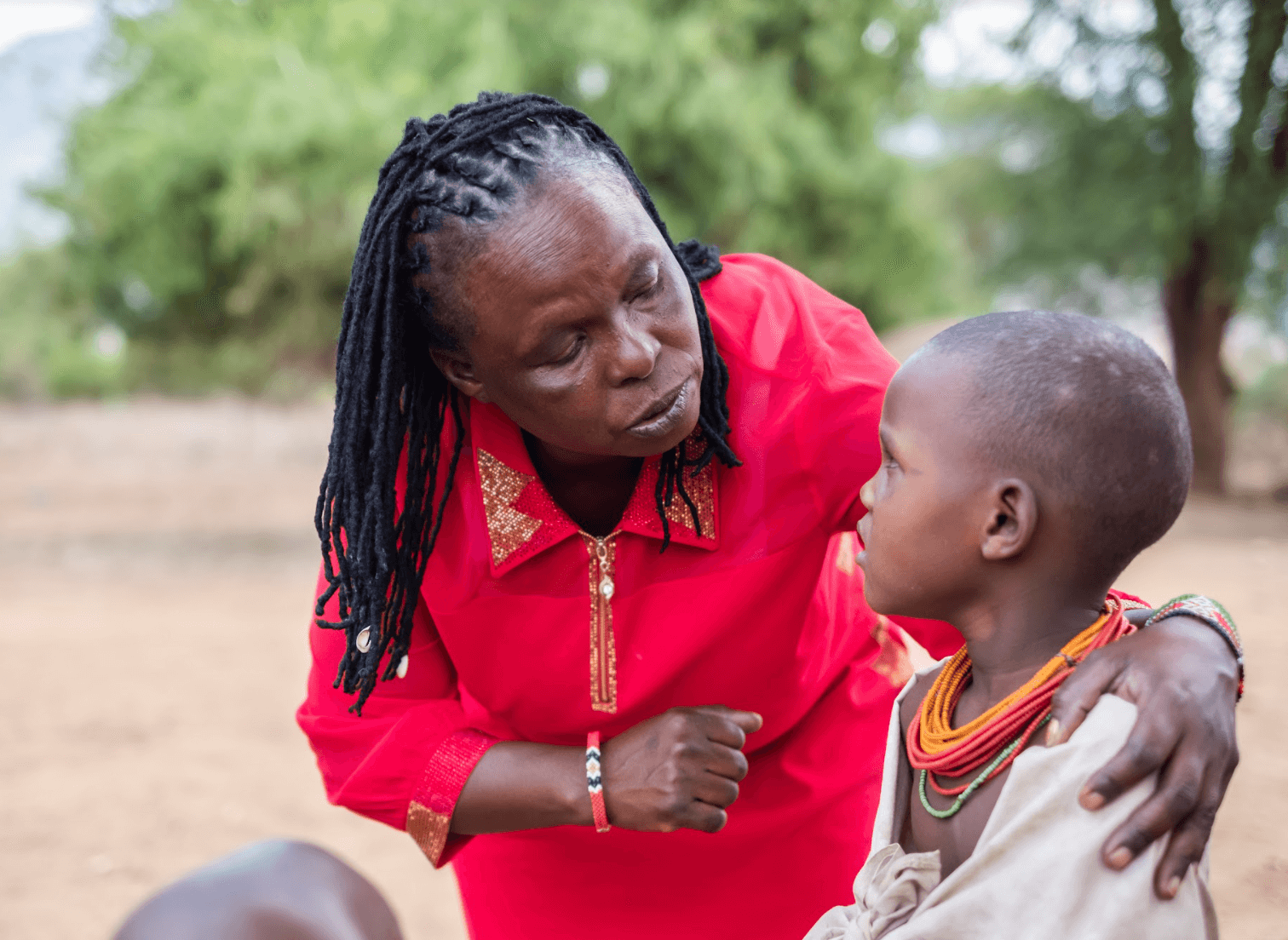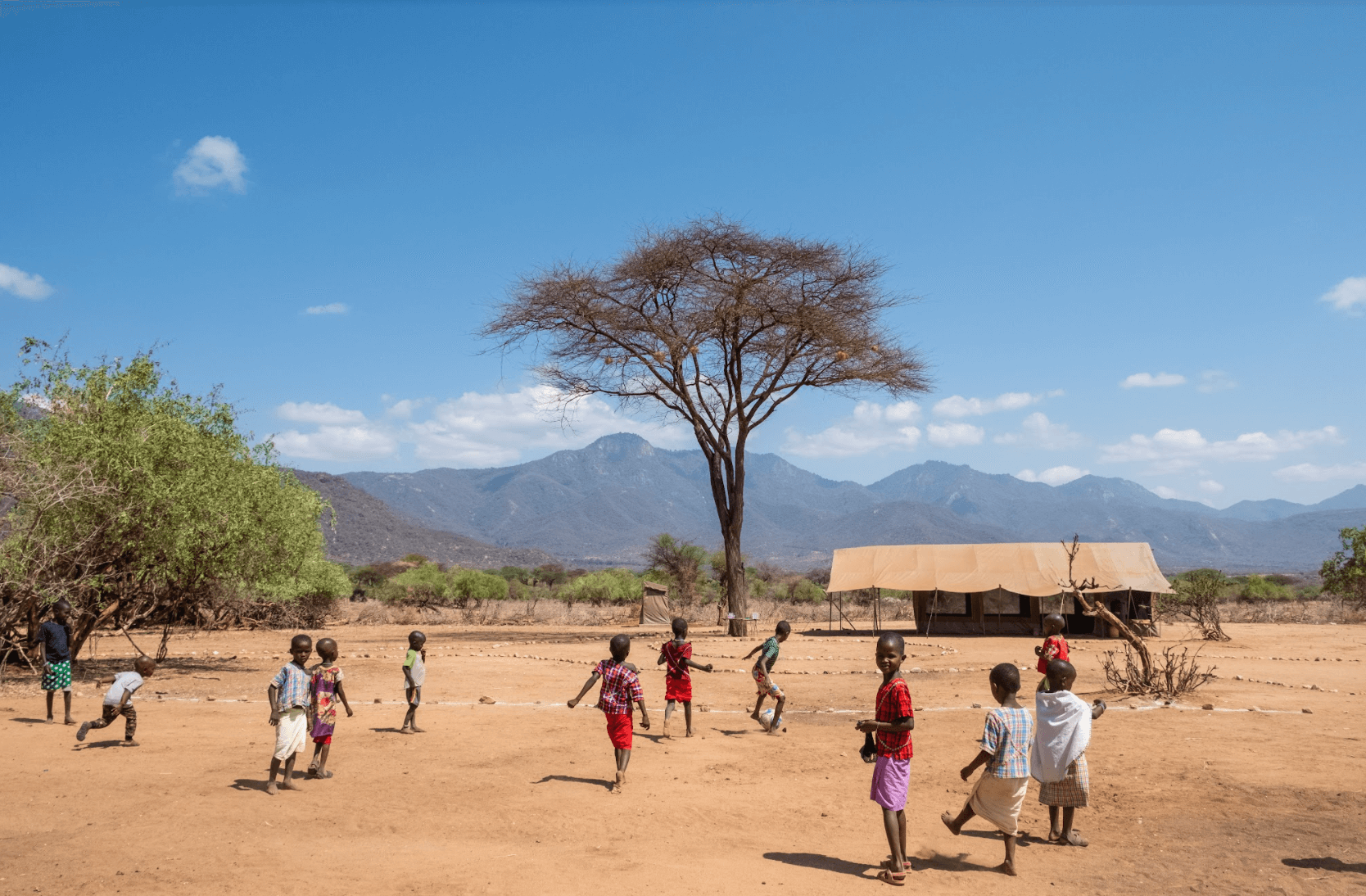Meet Teacher Judy
Meet Teacher Judy Mugambi, the Head of the Nomadic Montessori Schools program.
From teaching under a tree in a camp for Internally Displaced People, to becoming head of our Education Program, Judy’s story is nothing short of inspiring.
The importance of education in indigenous communities
Indigenous communities in Northern Kenya are the custodians of some of the largest remaining wilderness left in Africa, including many key endangered species. The long term prosperity of these eco-systems, depends entirely on in-depth generational support for children being born today.
As such, our cradle-to-career program provides children of Namunyak Conservancy with health, social, and educational support from birth through college and career. The aim of our program is to break the cycle of generational poverty by helping children effectively learn, grow, and succeed. Guided by a commitment to long-term, large-scale change in an entire community.
Starting with Early Childhood Development, we now have seven qualified teachers among three Montessori Schools in Namunyak Conservancy.
Meet Teacher Judy
What is your name and surname?
My name is Judy Esther Mugambi.
Where were you born and where did you grow up?
I was born in Nairobi and grew up in Samburu country, where I was enrolled in a boarding school. Though my parents were in Nairobi, I stayed in Samburuland. I spent school holidays with them but that was only three months a year. I finished my primary school level and joined a secondary school in Samburu.
Joining Sarara as a Teacher
What is your current role at the Sarara Foundation?
I am the Head of Education for the Nomadic Montessori School Program.
When did you join the Sarara Foundation?
I joined the Sarara Foundation in 2018.
What led you to working at the Sarara Foundation?
In the year 2007, Kenya had post election violence and as one of the victims I found myself in one of the IDP camps (internally displaced people camps). The IDP Camp had no schools so I decided to make a plan. I gathered young children who were also in the camp and I began teaching them under a tree.
I started with a few children, but after a couple of days, more and more parents brought children and I ended up teaching about 300 children! I decided to go around the camp asking for help. Three trained teachers came to assist. From there, UNICEF gave us a big tent and learning began.
In 2009, after a year of teaching in the IDP Camp, a special lady from AMI visited us through the Catholic Diocese of Nakuru and asked us to join Montessori training. This was the start of my Montessori journey!
I was one of the pioneers who started a Montessori school in Nakuru town called: Corner Of Hope. I worked in the school for nine years. Unbeknownst to me, The Sarara Foundation reached out to AMI. And so it happens that the same special lady, Lynn Laurence, who visited me in the IDP camp and helped me become a Montessori teachers, approached me again. This time to start a Montessori school in Samburu - where I grew up!
I started interviewing for teachers right away and that’s how Teacher Terry Kosgei joined us. Together we visited Samburu for more teacher interviews, as we needed Samburu teachers. That’s when we found Stella and Tony. They then joined the Montessori training in Nakuru.
In 2018 we opened The Sarara Foundation’s Montessori schools!
When did you decide that you wanted to be a teacher?
I decided to be a teacher when I was still young. In school, I was a leader in several sections like: music, reciting, poems and organising debates. When I finished secondary school, I worked as an untrained teacher for two years.
Where did you study to become a teacher?
I trained from 1997 to 1999 in a Government Institution to be a teacher. In 2009 to 2011 I trained as a Montessori teacher. Then from 2017 to 2021 I trained to be a trainer of Montessori teachers in Tanzania.
Life as a Teacher in Sarara
Briefly describe what your typical day looks like.
I get up at 6:00 am, prepare my breakfast then visit my neighbour who assists us in preparing porridge for children. At 7:30, I go to class to prepare materials and wait for the children to come. At 8:30 we begin our daily activities with our children till 11:30. Then we do outdoor activities like dancing, singing, football etc. During our indoor activities, children take porridge two or three at a time.
The Montessori method is a guide for children to have independent order, and patience. That's why indoor lessons should be done three hours continuously. From 12:00 - 2:00 pm we break for lunch. On Wednesdays and Fridays, we repair our broken materials and do painting. We end our day at 4:00 pm
What have been some of the most rewarding aspects of working as a teacher in Namunyak Conservancy?
The community have accepted and respect me despite the fact that I don't come from the community.
The school children have adapted to the Montessori method which will help them to change their community in the future.
I feel so good when our children join other schools, perform well and show a big difference compared to the children in regards to discipline.
I appreciate the Sarara Foundation for supporting everything in our learning institution. Training teachers, the health program and kind leaders.
On the other hand, what specific challenges have you encountered while working as a teacher in Namunyak Conservancy?
Sometimes our children drop out of schools because of droughts. I think the Sarara Foundation needs to start the next level of our Montessori curriculum because the community keeps asking where will take these children after completing 3-6 levels. We also struggle with network coverage.
What is / are the thing(s) you’d like us to fundraise for?
From my own observation, I think the Sarara Foundation should have an office in Samburu and signposts all over Samburu county!
What do you hope to see in the future?
What do you think, or hope, the results of your and the Nomadic Montessori Program’s work will be?
It will be helpful to train pioneer teachers because they have a long experience in the 3-6 level children. There are few challenges here and there but our Sarara Management teams have solutions and can handle them.
I hope to work hard and see that we have achieved our goals of starting more schools for the needy children in different manyattas, who have no opportunity of learning.
In the future I hope to see different community members who would wish to educate their children voluntarily. The current students will change their community because the Montessori way is life, and has the power to change peoples lives, regardless where they are.
Quick Fire with Judy
When you are not working, what do you enjoy doing?
When I am free I like reading and music.
Do you have a favourite animal?
I like elephants!
How many languages do you speak?
5! I speak Meru, Kikuyu, Samburu, Swahili and English.
Do you have a family of your own?
I am a single mother of two boys and two girls.
If you would like to support our Nomadic Montessori School Program, please click the button below.
Every donation we receive plays a vital role in the growth and development of our programs.









